Being profitable, sustainable and having a long-term projection for our operations is part of our contribution to Corporate Strategy and to society.
GRI (3-3) Understanding trends in accordance with the political, social, economic, regulatory and environmental context strengthens our Social-Management Process with a view to business sustainability, ensuring every day that in the development of our operations and new projects, we continue to go that extra mile that characterizes us, for being responsible, respectful and inclusive.
Thanks to the participation of specific and highly qualified teams, we develop strategies for our Stakeholder called “Communities” and each of the social actors that make it up to:
- Guarantee knowledge of these actors and the particularities of the different contexts in which they are present.
- Establish, strengthen and maintain relationships of trust, respect, collaboration and mutual benefit
- Guarantee the mechanisms and spaces for their adequate and timely information, participation and consultation regarding matters that could affect them positively or negatively, derived from our operations and the development of new projects.
- Identify, plan and implement actions of collective benefit that contribute to the integral development of the territories where we are present. Addressing all these aspects is essential to contribute to the sustainability of our operations and the viability of future projects, which means growing together (environment – Company).
Our Social-Management Model is framed in openness, innovation and learning from constant dialogue and transparency to know the contexts of the populations and their particularities.
Our Management
GRI (3-3) Social Management manages to positively impact Stakeholders, given its contribution to the permanence and sustainability of the Business. With the group of Communities, this management is relevant and timely by guaranteeing:
- Participation: We include their points of view on aspects of our operations that could affect them.
- Knowledge: Context, particularities and needs become important input to intervene in the territories.
- Social Investment: This allows addressing some needs in the territories with a focus on collective benefit and comprehensive development.
- Recognition and strengthening: of the structure of the community organization according to the type of community (ethnic and non-ethnic).
As development partners we act and materialize our commitment to the Communities and the territory from the Socio-Environmental Management Team and that of the Celsia Foundation. We have Corporate Guidelines based on procedures, guides and instructions that establish the principles of relationship and action that are based on three pillars: respect, transparency and trust building; based on these, we positively impact and articulate the Communities of the area of influence of our assets and new projects, intervening in four strategic lines:
Improving the Quality of Life;
Community infrastructure, health and environment, and culture, recreation and sports.
Promotion of Education:
Environmental education processes, educational infrastructure, student scholarships, providing educational implements and school kits, and strengthening of skills for teachers.
Community Development:
Education and training in entrepreneurship and life skills, strengthening grassroots organizations, productive projects and citizen-participation mechanisms.
Access to Energy:
Electrification with their own resources, management for electrification, actions that promote energy efficiency and improvement of internal networks.
In 2022, we updated our Social Policy as the principal Management Guideline, which is implemented by the Socio-Environmental Management Teams of the different businesses of the Organization and of the Celsia Foundation, with scope including all our contractors. Since last year, we have had a Corporate Socio-Environmental Team that supports and consolidates all the construction and standardization of guidelines and strategies of the Company’s Social Management, as well as monitoring compliance with the objectives.
Altogether, 100% of our assets and projects in Colombia and Central America carry out participatory processes with the Communities and assess and manage the impacts and risks associated with the Company’s presence in their territories.
Our goal and commitment is that all the actions we undertake within the framework of our Social Management continue to have 100% coverage of our operation centers and new projects.
GRI (3-3) (2-23) (2-24) (2-25) Within the framework of social management, actions are arranged, implemented and monitored to address the impacts and risks derived from our operations and the development of new projects, for which information, participation and consultation spaces are created with the social actors present in the territories, in such a way that these actions reflect their points of view, their knowledge and their interests. Likewise, Social Management based on dialogue with our Communities and knowledge of their contexts allows us to identify initiatives of collective benefit that contribute to the integral development of the territories, in such a way that we continue to grow and remain as a Company over time, while we create social value in our environments.
Our Social Management begins with instructions for the knowledge of the socio-economic, political and cultural characteristics of these populations, which allows defining social-approach strategies from the early stages of the projects.
We have the information, participation and consultation instructions that define the guidelines so that the Stakeholders (ethnic and non-ethnic Communities and other social actors) become actively involved in a timely manner in learning about our projects, identifying the impacts (positive and negative) derived from them and the formulation of management measures for their attention.
We apply our instructions to identify socio-environmental risks, aspects and impacts for their evaluation and management in the Company’s activities from the physical, biotic, socio-economic and cultural components, with emphasis on continuous improvement.
The impacts derived from our operations have management measures (prevention, control, mitigation and compensation) defined in the Environmental-Management Plan (EMP) or management records to guarantee the minimum impact on populations and their environments. Likewise, there is follow-up by the environmental authorities that includes participation of the Communities present in the areas of influence. These authorities evaluate compliance with management measures and their effectiveness. In the cases of ethnic communities, the Directorate of the National Prior-Consultation Authority (DANCP, in Spanish) ensures compliance with the agreements defined between Communities and the Company, within the framework of prior consultations to address the impacts derived from our operations and projects.
We attend to communications (requests and complaints) from Communities and other social actors present in the areas of influence, guaranteeing respectful, timely attention. If the complaints are related to impacts derived from our operations, they will be addressed in accordance with the respective management measures defined with a specific scale according to each case.
All the actions developed from the Organization’s Social Management are not only coordinated with the Communities and other social actors in the permanent relationship spaces that we have (meetings, field visits, workshops, interviews, informal conversations, work tables, among others), but also, more and more, we make them partners in their development, executing a large part of these actions.
Together, we define the best strategies for the dissemination of what we do, in such a way that they are in accordance with their particularities and in respect of their internal-organizational structures and autonomy.
Social-Investment Strategy
GRI (413-1) Social investment is based on knowledge of our communities, their environments and particularities; our relationship and action are based on respect, transparency and trust building. Our actions, both voluntary and mandatory, are defined in processes of direct agreement with the Communities, in accordance with the Organizational Social Policy, Principles and Values, aimed at building and strengthening sustainable relationships.
Mandatory investments
are focused on the development of actions that address the impacts of the construction, operation, and maintenance of the Organization’s projects and assets. They can be the product of agreement in prior consultations, social measures of an EMP, provisions of environmental authorities and legal provisions.
Voluntary investments
are concentrated in the development of initiatives of common benefit, which address pre-existing situations in the territories. not related to the impacts of our operations, but which are an opportunity to be partners in their development and operate creating social value.
We promote the efficient use of energy and access to it in the countries where we operate, with expansions, new electrifications and construction of new projects.
Affordable and Clean Energy
- Expands the coverage of the service.
- Protects natural resources necessary for the generation of electrical energy, since it reduces the pressure on forests.
- Strengthens strategic alliances to optimize resources and expand coverage and beneficiaries in the development of projects in this line.
- Progresses in the implementation of clean energies that help care for the environment.
- Helps to reduce losses, adjust consumption to customers’ ability to pay and prevent risks..
Benefit for the Business
The actions to access energy represent benefits for the Business, which we evidence with the following indicators:
- Feasibility of new projects to increase installed capacity and deliver more energy to our Stakeholders (Communities and clients): 6,357.60 GW/h per year to contribute to the optimal operation of our assets.
- Expand territorial coverage in 2022: 46,702 km of Distribution Network.
- Increase the number of clients from the expansion of installed capacity and coverage, which represents higher revenues for the Company.
in 2022
in 2022
The actions to access energy represent socio-environmental benefits, which we evidence with the following indicators:
in Energy-Access Projects
of internal network-improvement projects
Tolima and Valle del Cauca
of Energy-Access Projects
with five projects
These social investment actions make it possible to create social value to the extent that:
- We contribute to the improvement of the living conditions of our Communities and clients.
- We help prevent risks associated with service provision due to the poor condition of internal-electrical networks.
- We contribute so that our clients improve the use of energy, being more aware and adjusted to their payment capacities.
Results
We highlight the following results In 2022 in our Access to Energy Intervention Line:
Social Benefit:
- Investments for a total of COP 326,922,738.
- We benefited more than 1,300 people from different municipalities and villages in the Departments of Tolima and Valle del Cauca in Colombia, by improving the internal networks of their homes and strengthening their knowledge and practices for the efficient use of energy. In this way, we contributed to improving the living conditions of our Communities and clients; we helped to prevent risks associated with service provision, due to the poor condition of the internal-electrical networks and we contributed to our clients improving the use of energy, being more aware and adjusted to their ability to pay.
- We benefited 150 people through the development of five electrification projects in the Department of Tolima (Colombia).
Business benefit:
- We increased the installed capacity by 12% MW.
- We managed to generate 6,357.60 GW/h/year to contribute to the optimal operation of our assets.
- We expanded our distribution network by 980 km.
- We managed to serve 43,342 new clients.
We strengthen capacities and abilities in the Communities for their contribution to local development and strengthening of productive units according to the vocation of their territory.
Sustainable Cities and Communities
With this line we contribute to strengthening the capacities of the Communities in our areas of influence through their organizations and leaders, which allows them empowerment, self-management, social control and comprehensive development.
- We support the development of productive projects.
- We prioritize labor, local goods and services that boost the economy and contribute to local development.
The development of this line allows the Company to:
- Promote mutually beneficial relationships in the environments where we operate.
- Strengthen the productive capacities and vocations of Communities, contributing to their economic development and creating a favorable environment for business continuity.
- Promote processes of dialogue and concertation between the social actors present in the territories where we are present.
Benefit for the Business
Community-development actions contribute to the viability of the Business, the development of projects and the operation of assets, which is evidenced in the following indicators:
of which 33 were associated with projects due to situations arising from construction activities and prior consultation.
- All complaints were resolved in a timely manner, thus avoiding conflicts in the relationship and affectations in the operation of assets and development of new projects) / total communications received
That affected project operation and development in 2022
- corresponded to T&D projects
- two to plants in operation
- and two to the Tesorito project.
with spaces for dialogue for Community participation
with prior-consultation processes
Social or Environmental Benefit
Community-development actions represent socio-environmental benefits, which we evidence in the following indicators:
- Generation of capacities in the Communities of the areas of influence of the projects, for the development of their productive processes, management, leadership, entrepreneurship and self-employment, for the generation of income.
(based on the agricultural and livestock vocation of the territories)
- Contribution to the economic and social development of the territories:
Community-Development Projects
Results
We highlight the following results in 2022 in our Community-Development Intervention Line:
Social Benefit:
- Investments for a total of COP 13,163,761,651.
- We benefited a total of 24,005 people.
- We strengthened more than 117 Community organizations (ethnic and non-ethnic) in the Departments of Valle del Cauca, Santander, Cauca, Tolima, La Guajira and Sucre, in Colombia , through the development of training, awareness, alliances and endowment processes for the development of their Community and Cultural Management, benefiting more than 12,000 people.
- We were partners in the development of 27 productive processes and projects that strengthened the agricultural and livestock vocations of 35 communities in Antioquia, Cauca, Córdoba, La Guajira, Tolima and Valle del Cauca, which – in turn – contributed to the generation of self-employment, income and food sovereignty.
Benefit for the Business
- We generated participation and dialogue processes between the Communities and the Company; Here we highlight the development of prior consultation with 185 ethnic Communities (157 Indigenous Communities and 28 councils of Black Communities) from our areas of influence in 14 municipalities in nine Departments of Colombia.
- Number of complaints: Of 479 communications received in the framework of the operation and development of projects in Colombia and Central America, 46 corresponded to complaints. Of these, 39 were in Colombia, as follows: 33 associated with situations derived from the feasibility, construction, prior-consultation and employment activities of the Generation and T&D Projects and two from disagreements of the Communities surrounding the plants in operation. Another seven were in Central America due to claims from the Communities surrounding the plants in operation. All complaints were resolved in a timely manner and through dialogue and direct agreement, thus avoiding conflicts in the relationship and affectations in the operation of assets and development of new projects.
- Number of social events that affected the operation and development of projects: In 2022 there were 12 social events: eight corresponded to T&D projects, two to plants in operation and two to the Tesorito Project; all were attended with spaces for dialogue and agreement that allowed resolving the situations and continuing operations.
We carry out actions to improve the educational quality in our areas of influence, with school-infrastructure projects and the strengthening of teacher capacities.
Quality Education
This line contributes to educational quality, improving schools in terms of energy, water, and physical infrastructure, and training teachers to improve their teaching practices.
With all this, the Company stimulates local economic development, which – in turn – promotes a greater demand for energy, strengthens relations with the Community, generates better commitments that guarantee a favorable environment for the development of operations and fosters a sense of ownership and sustainable relationships by contributing to the education of children and young people with a vocation for leadership and development managers, Community leaders in the medium and long term of their territory.
Benefit for the Business
Actions to promote education represent benefits for the Business, which are evidenced by the following indicators:
who participate in Corporate Volunteering sessions related to promoting education
in Corporate-Volunteer activities related to promoting education
- The management of this project has allowed us to strengthen the pillars of the Celsia Culture and the Organizational Climate, through its link to the actions promoted by Corporate Volunteering.
- The strengthening of technical skills and soft skills in our employees, through their volunteering, allows us to strategically develop talent according to the needs of the Business.
Social or Environmental Benefit
The actions to promote education represent the socio-environmental benefits that are evidenced as follows:
- Generation of school, management and leadership capacities in the Communities of the areas of influence
with the development of the Foundation’s school-infrastructure works
who demonstrate greater school management and leadership
That improve school environments
of educational programs and projects
Through the programs: Ignite, Language and Mathematics, Reading Club, ICT Project, Alliance to Improve Educational Quality in Buenaventura; Social, Emotional and Ethical Learning Program (SEE Learning) and School Strengthening, Educational Realities Observatory (ORE, in Spanish) and Rural Education Alliance (ERA, in Spanish) for Antioquia.
Results
We achieved the following results in 2022 in our Promotion of Education Action Line:
Social Benefit:
- There were 54 jobs generated locally with the development of the Celsia Foundation’s school-infrastructure works.
- A total of 560 teachers benefited from the Teacher-Qualification and School-Strengthening Programs.
- We transformed 16 campuses, eight of which received complete improvements to their infrastructure and eight minor maintenance because they were campuses that had been improved years before by the Foundation, generating safe, healthy conditions for 2,554 students and 102 teachers. Investments for a total of COP 6,461,338,210.
- We benefited a total of 174,920 people.
Benefit for the Business
- We developed 25 educational projects aimed at teacher training, school strengthening, among which the following stand out: The Teacher-Qualification Program in Language and Mathematics, the Reading Club for teachers, the Alliance for the Educational Quality of Buenaventura, ICT Project and the Social, Emotional and Ethical Learning Program (SEE Learning), the Educational Realities Observatory (ORE, in Spanish) and the Rural Education Alliance (ERA, in Spanish) for Antioquia. Likewise, through Enciende, we improved school environments and contributed to the well-being of 16 educational centers.
- We had 142 volunteer employees from Colombia and 101 from Central America, who joined our volunteer activities.
- A total of 1,793 hours were invested by volunteer employees from Colombia and Central America, of which 1,265 were non-work (922 from Colombia and 343 from Central America) and 528 working hours, of which 428 were from Colombian employees and 100 from Central America, which implied a Company investment of COP 33,169,040.
Figures 2022
In the creation of social value, we have managed to build alliances and mutual support. not only with the Communities, through their social organizations, but also with the articulation of other private and public actors with common interests in the territories, which has made it possible to join efforts, resources and expand the impact of our investments.
Below, we present the detail of our social investments:
Prior Consultations
Number of Prior Consultations in Communities – Generation
Number of Prior Consultations in Communities – T&D
Note: This figure is part of our Social Investment.
These 185 communities that maintain prior-consultation processes are 157 Indigenous reservations (resguardos), town halls (cabildos), and groups (partialidades) and 28 community councils of Black Communities, distributed in 14 municipalities in the Departments of Valle del Cauca, Tolima, Cauca, Bolívar, Sucre, Córdoba, Cesar, Atlántico and La Guajira, in Colombia.
Works for Taxes
Occupational Health and Safety (SST, in Spanish) in the Communities
At Celsia, safety is a value of life and it is our commitment to promote the health and safety of the Communities in the areas of influence of the projects and assets.
We have not identified direct impacts on health, derived from our operations. In the specific case of projects under construction, we develop – through experts – epidemiological monitoring that allows monitoring of health issues that could arise from the arrival of a floating population during the construction stage of the projects.
Indirectly, with other actions of our voluntary social management, we are also contributing positively to the health of the populations, such is the case of the delivery of clay filters and the intervention of community-aqueduct systems that contribute to the improvement of water conditions for human consumption, reducing the number of gastrointestinal diseases. Likewise, the development of productive projects that improve economic conditions contribute to food security and, therefore, to people’s health.
Within our Social-Management Framework, and in alliance with local institutions responsible for and competent in health issues, we develop actions to prevent disease and promote health through care brigades that are taken to the Communities, with emphasis in women and children. We are also involved in some strategic-infrastructure projects for health care, either with the construction, improvement or provision of equipment and supplies.
Principal Results in 2022
Improving the Quality of Life
Colombia
- We contributed to the development of 70 initiatives for the construction and improvement of Community infrastructure, such as roads and paths, water-supply systems (especially in the Wayúu Indigenous Communities in La Guajira), community booths, sports and recreational spaces, among others that benefited more than 52,373 people.
- We supported the delivery of food kits and water in some communities to deal with emergency situations associated with the weather, mainly in Valle del Cauca and La Guajira.
- We developed comprehensive Family Health Days: prevention and promotion of people’s health, care and health of pets (sterilization) and vector control in strategic community sites in 16 communities in Antioquia, Córdoba, Tolima and Valle del Cauca in Colombia, benefiting more than 2,500 people.
- In alliance with the Grupo Argos Foundation, we delivered 4,156 clay water filters to vulnerable families in our areas of influence with no access to potable-water systems, located in 34 municipalities in eight Departments (Antioquia, La Guajira, Valle del Cauca, Tolima, Cauca, Córdoba, Santander and Atlántico), benefiting a total of 18,703 people who now have access to drinking water.
- We contributed to the quality of life of the population of the township of Manzanillo del Mar in Cartagena, so that – through the Serena del Mar Foundation – efforts would be joined to those of other cooperating entities for the construction of infrastructure that allowed access to Internet services for these communities.
- Through the Yumbo Business Alliance, 15 life-project workshops were held for 80 students from that municipality.
- We participated in Compromiso Valle,an initiative that, based on dialogue and active listening, brought together citizens, the Community, companies of all sizes, and foundations to contribute and add to the social transformation of the Valle del Cauca region, through the construction of better opportunities for the most-vulnerable population in the region.
In Central America:
- We provided supplies for the Gualaca Health Center, in Chiriquí, Panama, enabling it to attend other medical specialties, which care for 9,750 inhabitants.
- We developed improvements in Parque Oasis, a community infrastructure in Guayabo, Costa Rica; a park built by Celsia and the Guayabo Development Association, it is a place for recreation, culture and entertainment for a population of 3,854 people.
- We developed Happy Summer, in agreement with the National Children’s Board, which consists of four days in which topics – such as self-esteem, equity, Yes, I Can, teamwork, values, rights and duties – are discussed.
- We implemented improvements to the Zambrano community’s aqueduct, which benefits 80 people, most of them older adults and children.
- We delivered furniture for community activities in San Pedro B, in Colón, as a contribution to community development.
Community Development:
- We supported more than 117 community organizations (ethnic and non-ethnic) in the Departments of Valle del Cauca, Santander, Cauca, Tolima, La Guajira, and Sucre in Colombia, through the development of strengthening, awareness, alliance, and endowment processes for the development of their communities and cultural management, benefiting more than 12,000 people.
- We were partners in the development of 27 productive processes and projects that strengthened the agricultural and livestock vocations of 35 communities in Antioquia, Cauca, Córdoba, La Guajira, Tolima and Valle del Cauca.
- We joined the development of 160 cultural and recreational activities with community significance such as patron-saint festivities, cultural events, Christmas celebration, among others; developed in the Departments of Antioquia, Atlántico, Bolívar, Boyacá, Cauca, Cesar, Córdoba, La Guajira, Santander, Tolima and Valle del Cauca.
- We supported two programs that encourage citizen participation: “Buenaventura, How Are We Doing? (Buenaventura Cómo Vamos)” and “Tuluá, How Are We Doing? (Tuluá Cómo Vamos)”, which developed actions such as quality-of-life reports that account for updated information on public management on the most-relevant issues for development. of the territories and promoted spaces for public debate that strengthen democracy.
- We participate in the Alliance for Development in the Department of Antioquia,which focuses on the generation of individual and collective capacities for the progress of sustainable communities in territories with high vulnerabilities, accompanying the creation of productive projects and access to education of the young inhabitants of these areas.
- We participated in the Yumbo Business Alliance, in which processes were developed to strengthen community leaders and community organizations in the municipality, through the recognition of citizen initiatives and the diagnosis of capacities of Community-Action Boards.
- The Orange Workshop for Entrepreneurs, it was four days of workshops in which entrepreneurs from our impact areas were trained on the following topics: How Can I Start My Business, Finance for Entrepreneurs, Legal Aspects to Establish a Company in Panama and Costa Rica, and one about Social Networks to Boost Sales. We had the participation of 48 people from Limonal and Guayabo, in Costa Rica, and from the communities of El Valle, Gualaca, Guayabal and Higuerón de Chiriquí and San Pedro B, in Colón, Panama.
Access to Energy
- We developed five electrification projects in specific sectors of Tolima, Colombia, with internal adaptations of their electrical installations in homes, benefiting more than 150 people.
- We fostered spaces to raise awareness about the efficient use of energy and standardization of networks as determining aspects for the electrical safety of homes and optimization of energy consumption, which involved more than 1,300 people in specific sectors of Valle del Cauca and Tolima, in Colombia.
- In Central America, we carried out lighting projects in schools in Guayabal, El Valle, Higuerón and Gualaca, benefiting 710 students.
Promotion of Education:
- We delivered more than 39,000 school kits to boys and girls in our areas of influence.
- Significant progress was made with the construction of the Training Center for academic training in maintenance of networks, measurements, photovoltaic systems and underground networks in the municipality of Yumbo, in the SENA (the National Learning Service) – Celsia alliance.
- We continued with the free Fiber-Optic Internet Project for educational institutions in 24 locations in Tolima and another 92 in Valle del Cauca, which benefited more than 62,900 people.
- Through the Enciende Program, we continued to improve the physical infrastructure of 16 schools, thereby creating safe, healthy conditions for 2,554 students and 102 teachers with an investment of COP 2.665 Billion.
- We reached school number 100 with the Enciende Program to improve infrastructure in educational institutions in our direct areas of influence.
- We implemented the Teacher-Qualification Program in Language and Mathematics in Ibagué, opening a new group of 30 teachers and five educational institutions. This program already has a total of 7,061 beneficiaries (7,001 students and 60 teachers, in 17 educational centers in Ibagué).
- New lights were installed in the educational centers of Guayabal, El Valle, Gualaca and Higuerón, located in the province of Chiriquí, in Panama. With these improvements, 710 students benefited.
- The ICT Project in Pradera began with the signing of the contract with the ICESI University and the socialization of the project with the municipal administration and the rectors of the educational institutions of the municipality. In addition, the participation of 60 teachers, who will be certified in the use and appropriation of ICT for educational innovation, was arranged.
- We participated in regional alliances that work to promote education: Alliance for Educational Quality in Buenaventura, Yumbo Business Alliance, the Educational Realities Observatory (ORE, in Spanish), and the Rural Education Alliance for Antioquia (ERA, in Spanish).
- In Costa Rica, we contributed furniture for the school canteens in the primary schools of San Jorge, San Pedro and in the Colegio de Guayabo, benefiting 428 students. Likewise, we worked on the project to strengthen learning for 12 first- and second-grade children at the Pueblo Nuevo Unidocente School. We held robotics workshops and took 40 children to an experience that projects them to be future engineers.
- We delivered 570 school kits in San Pedro, San Jorge, San Isidro, Limonal, Pueblo Nuevo, Los Angeles and Rincón de la Cruz in Costa Rica and in Chiriquí Panama in schools in Guayabal, El Valle, Gualaca and Higuerón.
Lessons Learned
Despite the difference in language (Wayuunaiki), the experience of prior consultations with the Wayúu Indigenous Communities in La Guajira is the best example of how Celsia adapts to the particularities of the Communities to establish a direct, permanent relationship, based on respect, transparency and good faith.
This experience was turned into a 33-minute documentary called “The Value of the Word,” in which the traditional authorities of the communities are some of the protagonists, who narrate their experience during the prior consultations carried out in our wind projects in La Guajira, Colombia, where the power of dialogue and respect for words are highlighted.
On the other hand, and in order to monitor, control and document the social-management actions that we develop in the Company, we have various tools to maintain traceability and management support, among which we highlight:
- The Social Geographic-Information System (GIS): A cartographic and documentary tool that allows us to map our areas of influence based on a permanent exercise of socioeconomic, political and cultural characterization of the territories where we are present.
- Social-Investment Matrix: This allows the real-time systematization of each one of the social investments (mandatory and voluntary) that we developed
- PQ Matrix: This allows us to manage and document all communications: requests and complaints (PQ) that come from social actors, always seeking timely attention.
for supporting the vision of a better education in the province of Chiriquí, Panama.
of the community of Jaguito, Aguadulce, Panama.
in the municipality of San Andrés de Cuerquia, Antioquia, for sponsoring the Health Brigade.
for Celsia’s involvement in the celebration of the 64th anniversary of the founding of the town, with the provision of vests for the Presidents of the Community-Action Boards.
of San Antonio, municipality of Sahagún, Córdoba, to the El Tesorito Thermoelectric Company, for its invaluable contribution to the beautification of the cemetery and the promotion of development in the region.
from the township of San Antonio, municipality of Sahagún, Córdoba, to the El Tesorito Thermoelectric Company, for having completed an outstanding work for the new generations.
GRI (3-3) Short-, Medium- and Long-Term Objectives:
Short Term(0 to 2 years)
Consolidate the implementation of Fundación Celsia Programs with emphasis on:
- The Teacher-Qualification Program in Language and Mathematics, in the municipality of Ibagué, Tolima, with the completion of the first group of trained teachers and progress with the second group of teachers and institutions.
- Contribute to the strengthening of educational quality through the development of the pilot program in the municipality of Pradera,, Valle del Cauca,to strengthen the use of Information and Communication Technologies (ICT), from three components: Connectivity (Internet Celsia in Your School), Teacher Training (ICT Foundation Project) and ICT Endowment (Works for Education-Sector Taxes).
- Contribute to the improvement of the living conditions of communities near our areas of influence that lack access to potable water in their homes, through the delivery of 10,000 clay water filters, in partnership with the Grupo Argos Foundation.
- Develop new internal-work schemes and information consolidation to make better decisions regarding social management at Celsia.
- Link and articulate the social-management component in the Organization’s ESG table.
- Formulate and implement the Environment Strategy, which unifies and consolidates the Organization’s Social-Management Guidelines, contemplating the new challenges and requirements in social terms.
- Develop and implement a prior-consultation tool, which facilitates the mapping and monitoring of the formalized agreements of the different assets and projects.
- Structure and put into operation a visualization tool for relevant information on social matters, which consolidates aspects such as social investment, PQ, prior consultations, beneficiaries.
- Strengthen relationships of trust and create alliances of high social value with strategic actors present in the territories where we develop new projects.
- Give continuity to the management and development of projects of social importance, through the mechanism of Works for Taxes in Colombia.
- Strengthen the implementation of social management programs in the wind projects of La Guajira, Colombia, in such a way that they generate a positive impact in the communities of the area of influence and, at the same time, become a benchmark for similar projects or in the same region.
- Contribute to the generation of income and development of capacities for self-employment in the Communities in the areas of influence of the power plants in operation, through leverage and support in the implementation of productive projects.
Medium Term(3 to 5 years)
Consolidate the implementation of Fundación Celsia Programs with emphasis on:
- Develop and publicize the first phase of the systematization process of the Social, Emotional and Ethical Learning (SEE Learning) Program, in partnership with the Levapan Foundation, the municipal administration of Tuluá, Valle del Cauca, Emory University (the United States) and the San Buenaventura University (Colombia), which allows the program to be sustainable in the participating educational institutions.
- With the selected Stakeholders, socialize the document that compiles the main Lessons Learned from the programs and projects to strengthen teacher capacities, in such a way that methodologies continue to be generated to support teachers to replicate the Foundation’s projects.
- Develop new internal-work schemes and information consolidation to make better decisions regarding social management at Celsia.
- Formulate new Social-Management Indicators that establish a relationship between our social investment and the development of the Organization’s businesses.
- Design, implement or welcome a Social-Impact Measurement Methodology that can be applied to programs and projects under our management.
Long Term(6 or more years)
- Consolidate Celsia and its brand as a Company with high standards in terms of social management that establishes long-term relationships.
- Analyze the updating of the Social Strategies formulated in accordance with the current Social Policy, which respond to the needs of the socio-economic and cultural context.
PWA: Projects, Works and Activities.
EMP: Environmental-Management Plan.
DANCP: Directorate of the National Authority for Prior Consultation.
TES: Transfers from the Electricity Sector.
SEE Learning: The Social, Emotional and Ethical Learning program.
Geographic-Information System (GIS): A set of specific components that allow end users to query, integrate, analyze, and represent efficiently.
Works for Taxes: A Colombian Government mechanism in which companies can pay up to 50% of what they declare for income in social-investment works.
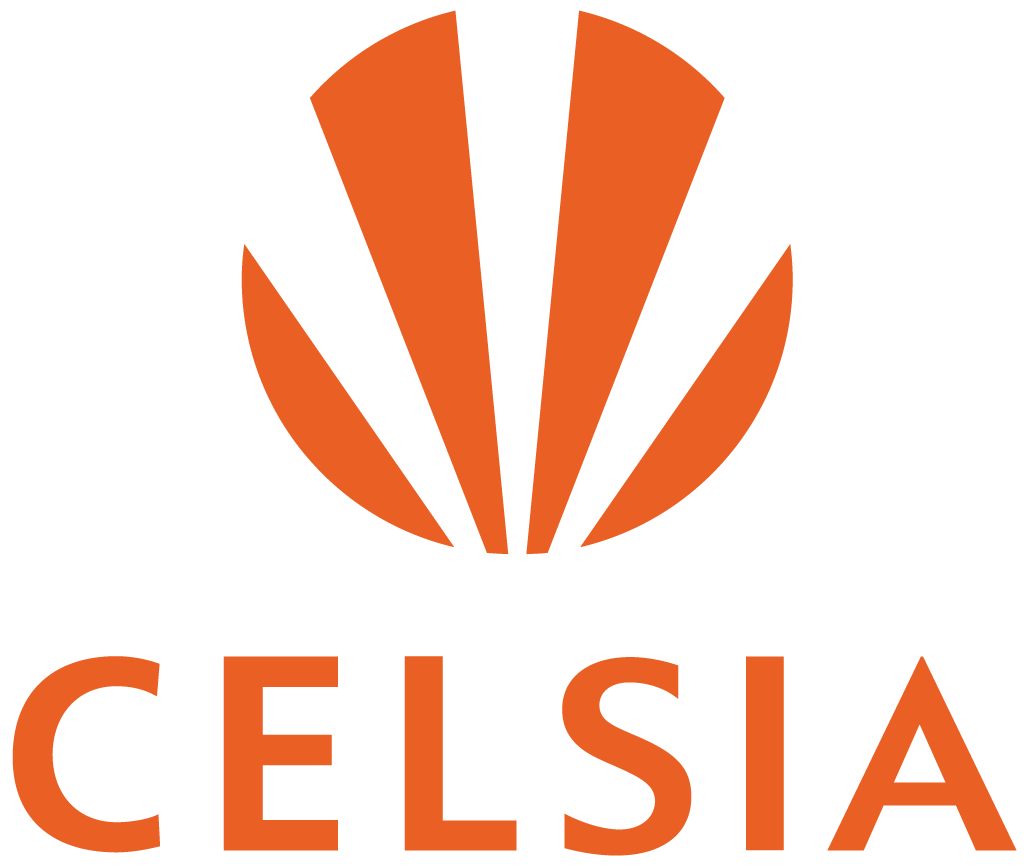
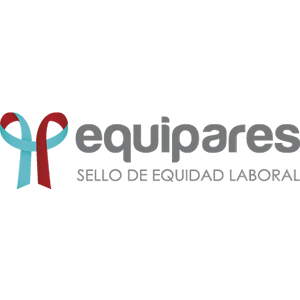
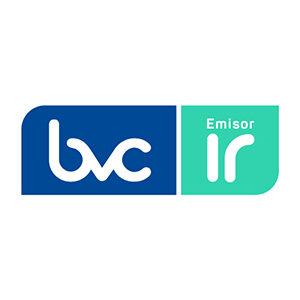


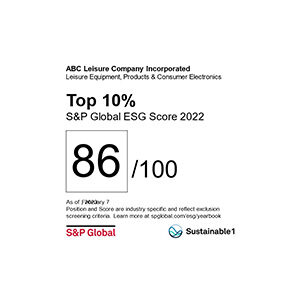
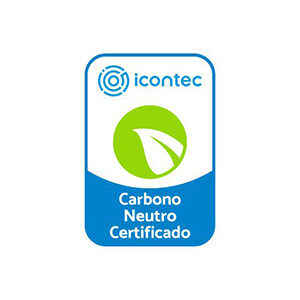
Social or Environmental Benefit